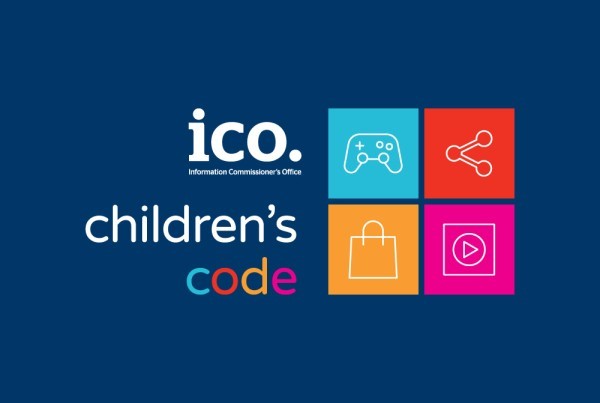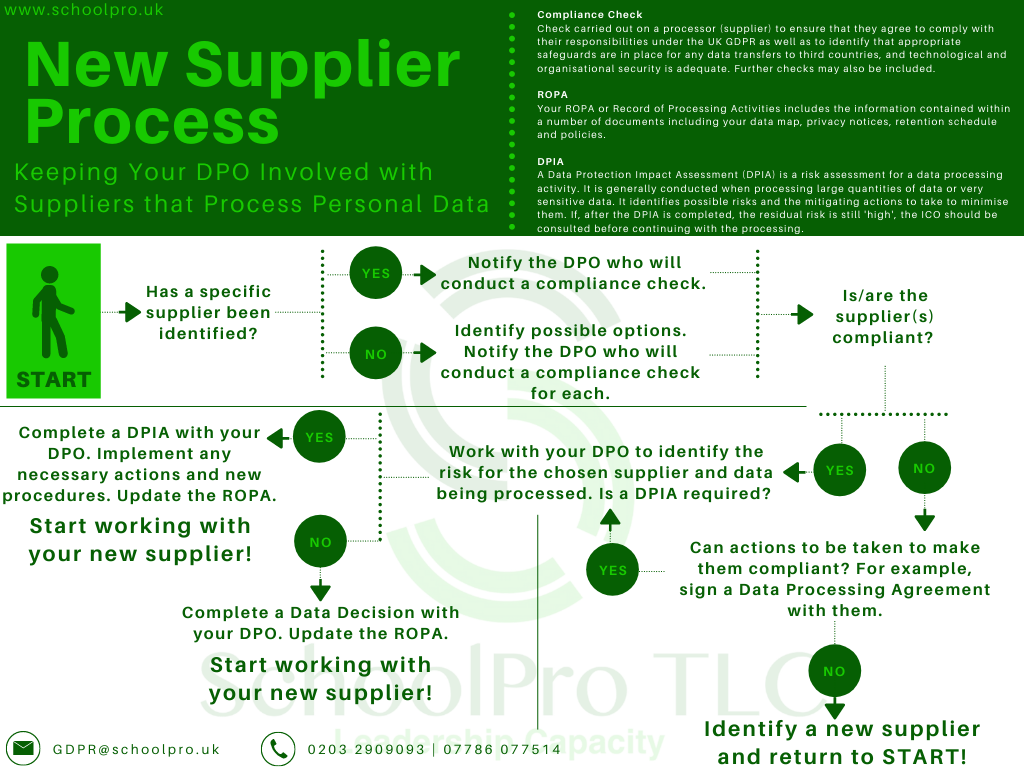
Welcome to this month’s newsletter. We know that you will be phenomenally busy at the moment with schools now fully reopening. We realise that this is both an exciting and daunting time for most schools, school staff and pupils, so we wish you the best of luck. We hope that it goes really well! We appreciate that your focus will be on reopening right now but we will continue to prepare resources, guidance and training for you, and are here if you need us at this time. Just ask!
The main topic this month focuses on reducing the risk of causing data breaches by using email. Email is currently used in ever increasing amounts by organisations and is one of the highest causes of data breaches. It is the top cause of data breaches on our own data breach log! We have put together some top tips to reduce that risk! There is also:
If you have any further questions about the topics below, or if you would like to book your next visit from us, either online using video conferencing or onsite once schools are accepting visitors, please get in touch via GDPR@schoolpro.uk. And don’t forget, if there is anything else that you need support with at this time, please ask and we will do whatever we can within our capacity to assist.
Stay safe and healthy!
A recent report by Egress has shown that 95% of IT leaders state that their client and company data is at risk due to email and that 83% of organisations have experienced data breaches via email in the last 12 months. Statistics also show that 85% of employees are sending more emails due to working remotely during the pandemic.
Our own figures back this up too. Since the start of 2021, we have had 86 breaches logged on our portal and around 60% of those breaches have been caused by email in one way or another. Common breaches include emailing a group external to the school (e.g. parents) and not using Bcc for the email addresses or sending the wrong file to the wrong person.
Whilst it is nearly impossible to reduce the risk of breaches to zero, we can certainly look to minimise it as much as possible. Here are some actions that you can take to do just that:

The Children’s Code (or Age Appropriate Design Code to give its formal title) is a data protection code of practice for online services, such as apps, online games, and web and social media sites, likely to be accessed by children. It came into force on 2 September 2020 with a 12 month transition period to give organisations time to prepare. The ICO is committed to supporting all organisations with advice and resources to help them achieve compliance by 2 September 2021. (Children’s Code hub | ICO)
Whilst the code is aimed at the companies that provide the online services to children, it is clear that the new code will put some additional responsibilities on schools as data controllers, not least to try and ascertain that the suppliers they use for online services are compliant with the code.
The code covers a wide range of standards (15 in total – Standards of age appropriate design | ICO) from looking after the best interests of the child to data sharing, from parental controls to transparency. The code will expect suppliers to:
As a school, and as your DPO, we will want to work in parallel with the code to support and protect young people so this will include, among other things, ensuring that:
We have mentioned this topic in a recent newsletter but it is important to reiterate the role your DPO (that’s us!) should play when bringing in new suppliers.
If a supplier is going to be processing personal data for your organisation, it is important that you follow the flow chart below. This doesn’t have to be an onerous task or add huge amounts of time and bureaucracy to your procurement process. The key things to remember are:

We are asked data protection questions by schools on a daily basis and there are some questions that come up regularly. We now have an FAQ section on the website for these and all of our answers are published there. You can find this on the Data Protection page of the website or in the blog. Here is one of the questions we’ve been asked recently and the answer we have provided. We will publish more in future newsletters:
We have discussed this particular issue with the ICO. They have stated:
“Data protection law gives a right to individuals to access their own data, so the school cannot put additional conditions on releasing the person’s own data. If the school is concerned about harm to third parties due to that being released then that may be grounds to withhold it.”
As a school then, you cannot tell the data subject what they can or can’t do with the data. If you are concerned about harm then you should redact teacher names. The ICO go on to say:
“The school needs to assess if it is reasonable to supply third party [i.e. teacher] data, taking into account that there is a presumption of reasonableness for teachers. They can ask the individual about their intentions with the data in order to make that assessment, and in some cases it is relevant to ask the third party for consent.”
Your options then are to speak to the data subject about their intentions and, if you feel there is a risk, redact the names further. It might be that this redaction isn’t needed on all emails as there are only some you would be concerned about being published.
Will certain emails be detrimental to the teacher if they are posted with their name included? If so, redact those specifically.
If you are at a point in the SAR process where the deadline is approaching and the limited time available is not enough, speak to the data subject, explain the need to delay for a short period, and then issue when ready. This would be preferable to issuing incorrectly.
Next month – we are going to look at how you should respond to a Right to Erasure request from a parent if a pupil has moved on to another establishment.
We would like to take the chance to remind you of our discounted secure confidential waste disposal service that we recently launched. This will have the added bonus of being fully documented and compliance checked by us as your Data Protection Officer.
Click on the button below and complete our short 30-second survey to register your interest and request a quote:
This month we have no new documents but a plethora of updated documents due to the change in legislation from the GDPR to the UK GDPR. Unless otherwise stated, all of these updates are to do with the legislation update:
Updated Documents
Location tracking report: X-Mode SDK use much more widespread than first thought | The Register
More than three billion emails and passwords were just leaked online | TechRadar
Apple CEO escalates battle with Facebook over online privacy | apnews.com
Biggest data breach ‘of all time’, COMB, has billions of emails | Metro News
Facebook sued for ‘losing control’ of users’ data | BBC News
UK watchdog fines two firms £270k for cold-calling 531,000 people who had opted out | The Register
Cybersecurity: 2.6m in UK unlikely to take action following data breach | yahoo.com
3.27 Billion Reasons to Change Your Password | Panda Security
Customer and staff personal data found abandoned in Oasis bins | Swindon Advertiser
Tracker pixels in emails are now an ‘endemic’ privacy concern | ZDNet
WhatsApp to limit functionality for those who don’t accept privacy changes | androidauthority.com
‘Millions of people’s data is at risk’ — Amazon insiders sound alarm over security | POLITICO
Please contact us if you do have further questions at GDPR@schoolpro.uk.
SchoolPro TLC Ltd (2021)
SchoolPro TLC is not responsible for the content of external websites.
For a confidential conversation about the needs of your school or organisation, please contact SchoolPro TLC using the links below. Based in Gloucestershire, available anywhere in the UK!
SchoolPro TLC Limited was formed by school and education leaders with over 60 years of experience across all stages of education and in a variety of contexts. The company founders have worked to improve educational provision as both senior leaders and school governors.
Monday – Friday : 8am – 6pm
SchoolPro TLC Ltd
Unit 1b Aerotech Business Park, Bamfurlong Lane, Cheltenham, United Kingdom, GL51 6TU
© 2025 SchoolPro TLC – All Rights Reserved